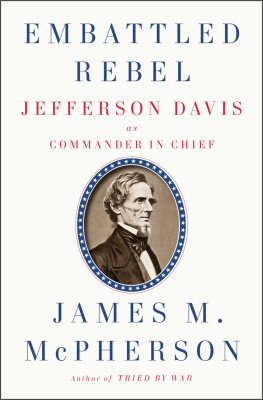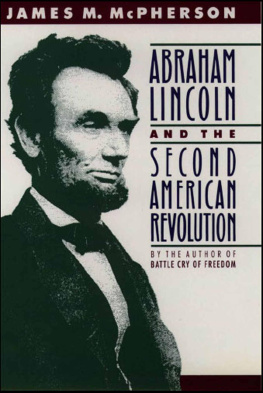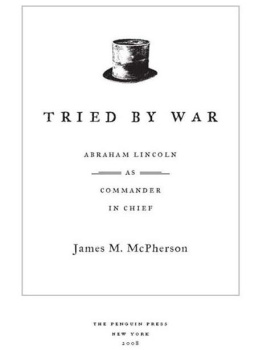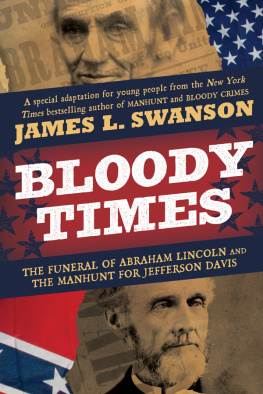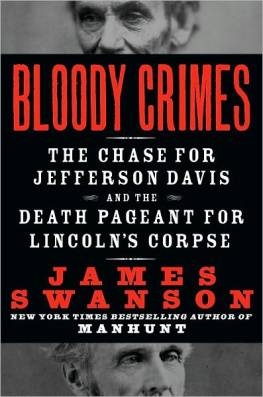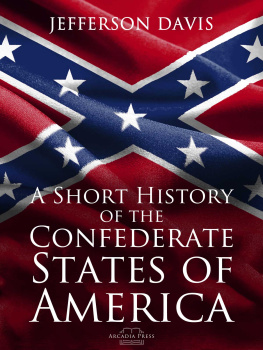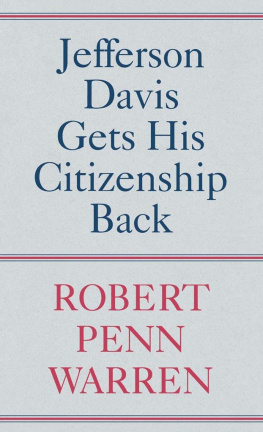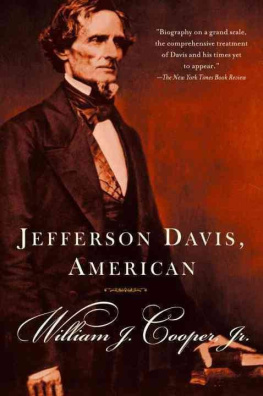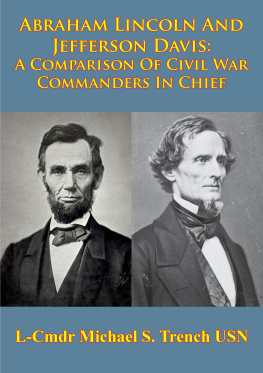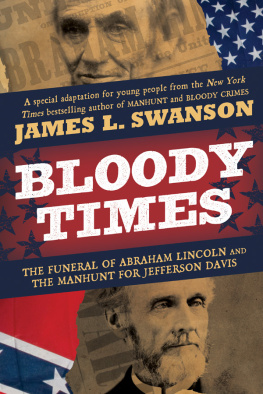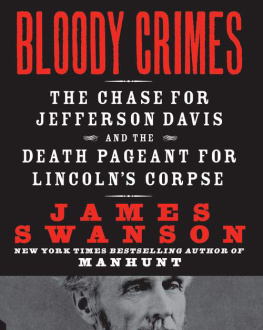James M. McPherson - Embattled Rebel: Jefferson Davis as Commander in Chief
Here you can read online James M. McPherson - Embattled Rebel: Jefferson Davis as Commander in Chief full text of the book (entire story) in english for free. Download pdf and epub, get meaning, cover and reviews about this ebook. year: 2014, publisher: Penguin Press, genre: History. Description of the work, (preface) as well as reviews are available. Best literature library LitArk.com created for fans of good reading and offers a wide selection of genres:
Romance novel
Science fiction
Adventure
Detective
Science
History
Home and family
Prose
Art
Politics
Computer
Non-fiction
Religion
Business
Children
Humor
Choose a favorite category and find really read worthwhile books. Enjoy immersion in the world of imagination, feel the emotions of the characters or learn something new for yourself, make an fascinating discovery.
- Book:Embattled Rebel: Jefferson Davis as Commander in Chief
- Author:
- Publisher:Penguin Press
- Genre:
- Year:2014
- Rating:5 / 5
- Favourites:Add to favourites
- Your mark:
Embattled Rebel: Jefferson Davis as Commander in Chief: summary, description and annotation
We offer to read an annotation, description, summary or preface (depends on what the author of the book "Embattled Rebel: Jefferson Davis as Commander in Chief" wrote himself). If you haven't found the necessary information about the book — write in the comments, we will try to find it.
History has not been kind to Jefferson Davis. His cause went down in disastrous defeat and left the South impoverished for generations. If that cause had succeeded, it would have torn the United States in two and preserved the institution of slavery. Many Americans in Daviss own time and in later generations considered him an incompetent leader, if not a traitor. Not so, argues James M. McPherson. InEmbattled Rebel, McPherson shows us that Davis might have been on the wrong side of history, but it is too easy to diminish him because of his causes failure. In order to understand the Civil War and its outcome, it is essential to give Davis his due as a military leader and as the president of an aspiring Confederate nation. Davis did not make it easy on himself. His subordinates and enemies alike considered him difficult, egotistical, and cold. He was gravely ill throughout much of the war, often working from home and even from his sickbed. Nonetheless, McPherson argues, Davis shaped and articulated the principal policy of the Confederacy with clarity and force: the quest for independent nationhood. Although he had not been a fire-breathing secessionist, once he committed himself to a Confederate nation he never deviated from this goal. In a sense, Davis was the last Confederate left standing in 1865. As president of the Confederacy, Davis devoted most of his waking hours to military strategy and operations, along with Commander Robert E. Lee, and delegated the economic and diplomatic functions of strategy to his subordinates. Davis was present on several battlefields with Lee and even took part in some tactical planning; indeed, their close relationship stands as one of the great military-civilian partnerships in history. Most critical appraisals of Davis emphasize his choices in and management of generals rather than his strategies, but no other chief executive in American history exercised such tenacious hands-on influence in the shaping of military strategy. And while he was imprisoned for two years after the Confederacys surrender awaiting a trial for treason that never came, and lived for another twenty-four years, he never once recanted the cause for which he had fought and lost. McPherson gives us Jefferson Davis as the commander in chief he really was, showing persuasively that while Davis did not win the war for the South, he was scarcely responsible for losing it.
James M. McPherson: author's other books
Who wrote Embattled Rebel: Jefferson Davis as Commander in Chief? Find out the surname, the name of the author of the book and a list of all author's works by series.

